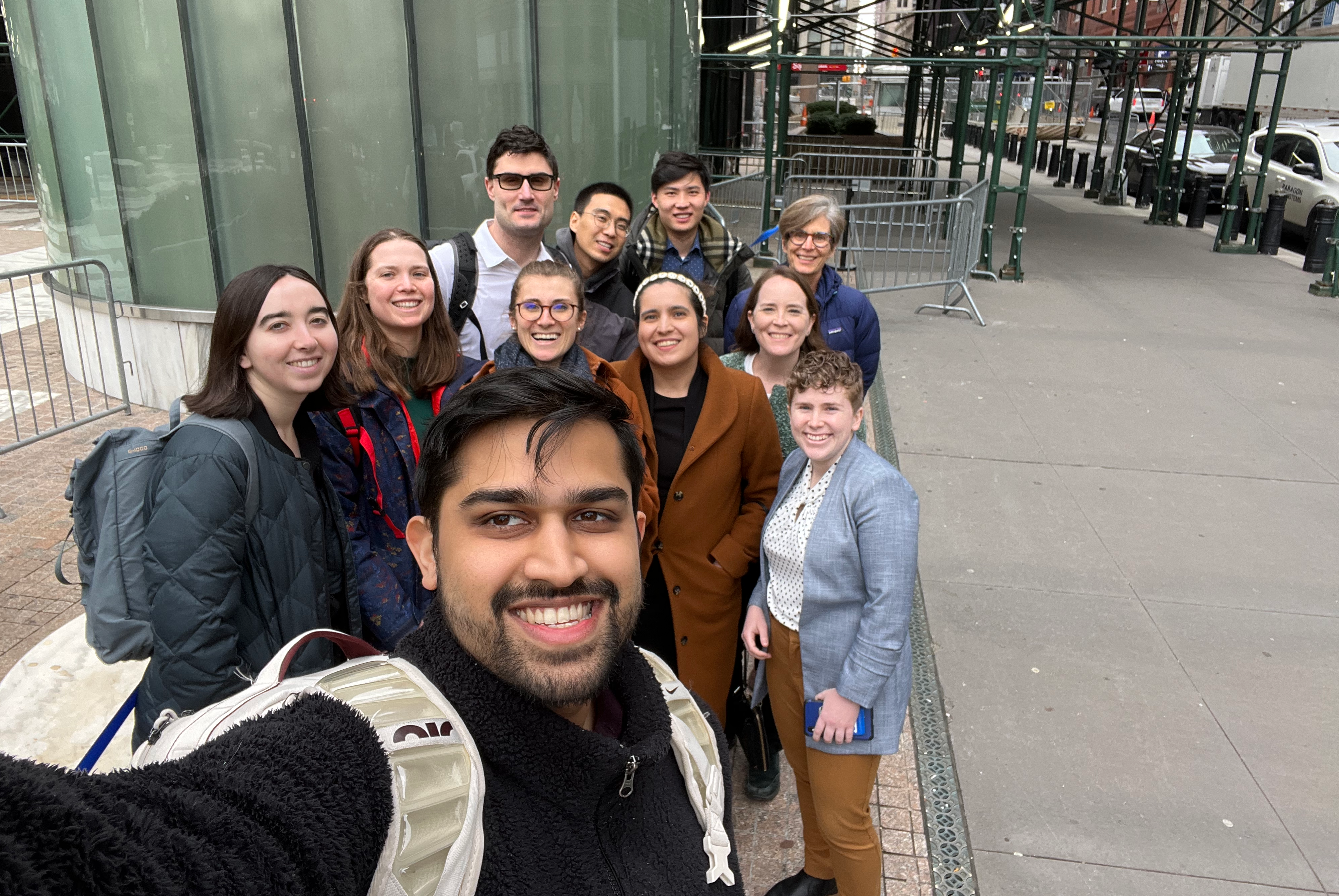This website uses cookies
We use cookies to ensure that we give you the best experience on our website. If you continue to use this site we will assume that you are happy with it.

Helping a pro bono client always feels better than just doing a job. No doubt, that feeling comes from the immediacy of making a difference in someone’s life. When 3L and 2L students in Cornell Law’s Afghanistan Assistance Clinic set out in late March to volunteer at New York City’s 26 Federal Plaza immigration courtrooms, the plan was to observe hearings and screenings of newly arrived immigrants conducted by Catholic Charities.
Following a brief training by Catholic Charities, twelve clinic students and Clinic Director Hilary Fraser arrived at the immigration courthouse in lower Manhattan to find an overwhelming number of immigrants seeking help. Upwards of fifty individuals with babies, spouses, and strollers crowded the halls and waiting room, their faces tense and already defeated by the prospect of not seeing a lawyer that day. Wi-Fi was limited, outlets unavailable, interpreters in short supply, and just two Catholic Charities lawyers were patiently working through the crowd person by person to resolve these obstacles as best they could. Both the need for help and the challenges to providing it were immediately apparent.
In the moment, the Cornell clinic students responded by choosing to help instead of observe. They drew upon a key clinical skill—problem-solving in real time. The most pressing problem was clearly translation. Immigrants from Nicaragua, Russia, Jamaica, Turkey, and Mexico required translation of litigation terms, straining the foreign language abilities of the clinic students. Some students with foreign language skills were able to converse directly with the individual they were working with, occasionally consulting their phones to translate unfamiliar words. Other students used an interpretation service over the phone, as they held up their phones between themselves and the person they were working with as the interpreter remotely facilitated their conversations in Turkish and Spanish.
Anticipating the potential shortage of interpreters, one student had pre-arranged with her Spanish-speaking aunt to be available by phone that morning in case she was needed, and she was. Another student made a quick-reference sheet of immigration litigation terms in Spanish. Other clinic students called home to classmates in Ithaca who spoke Spanish and Russian to help translate by phone.
Back in the courtroom, Cornell Law students sprawled across the wooden benches and at the counsels’ tables, creating spaces to review immigrants’ court documents and complete computerized interview records. Someone retrieved food from outside the building, finding allowance from security guards. Someone worked with paper forms when computers could not be found. In the end, the ‘Day of Service’ accomplished more than intended—interviews of around fifteen immigrants and learning first-hand of oppression, harrowing travel, economic misery, and physical violence.
Clinic students remarked on how much they experienced during the several hours of doing intakes. “The intake meetings were more hectic than I expected, said Syed Areeb Anzar ’23, “but as advocates and representatives, lawyers need to remain calm, positive, and composed.”
Several students commented on the suffering that the immigrants experienced, and the bravery and resilience that they displayed in traveling to the United States. These discussions left students humbled, frustrated with the U.S. immigration system, and proud that they could make a small contribution that day. Clinic students remarked on the spirit of helpfulness communicated by their classmates back in Ithaca who were quick to help translate.
Students were impressed that Catholic Charities had set up the helpdesk and developed an organizational system intended to help as many people as possible. Still, given the immense need for immigration legal assistance, “It feels like a small drop in the ocean,” said Edith Perret, L.L.M. ’23.
“People in our country’s immigration system are more than just names or A-numbers—they are people with stories to tell,” said Danielle Dominguez ’23. “I found this day to be very meaningful to me—as a daughter of refugees—immigration is part of my life’s story. I am the product of the U.S. immigration system. This was one of those moments that reminds me of the type of lawyer I want to be when I graduate—one who gives back to the community and leads with compassion and understanding.”